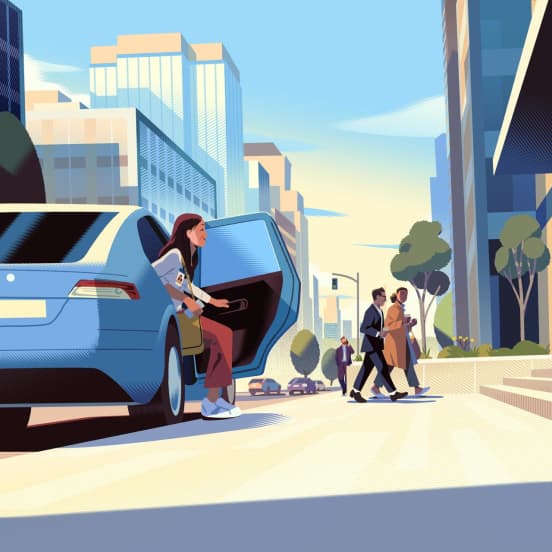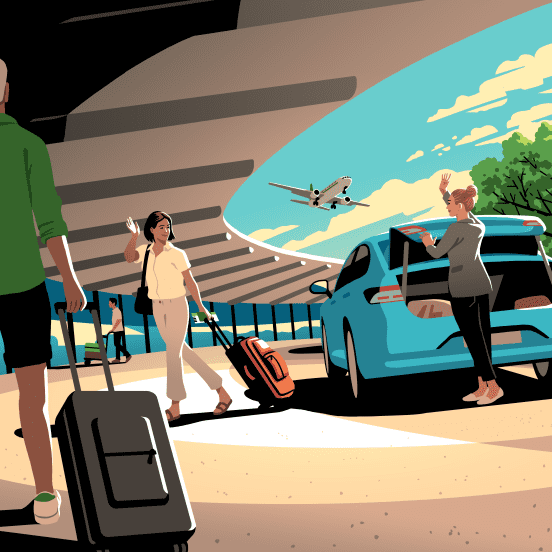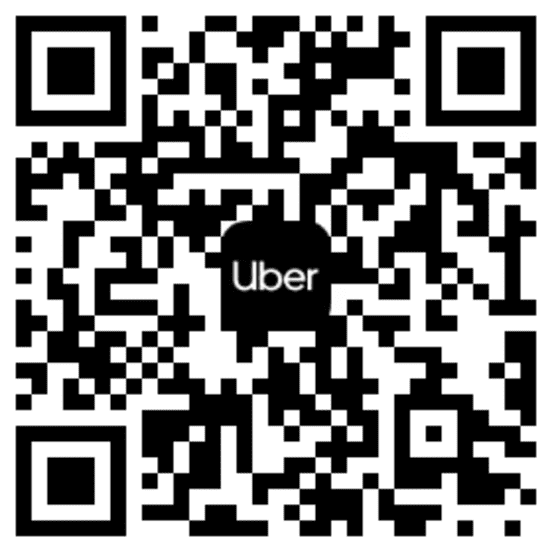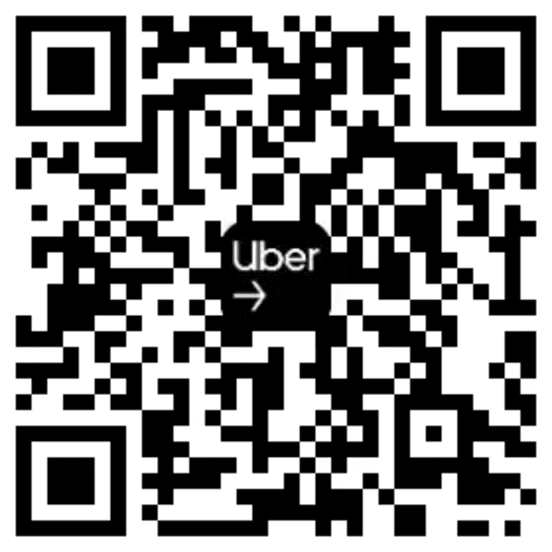Getting around Chicago, IL
Planning to travel in Chicago? Whether you’re a visitor or a resident, let this guide help you make the most of your Chicago experience. Travel from O'Hare International Airport to popular hotels like Marriott Marquis Chicago using Uber and discover popular routes and destinations.
Reserve car service in Chicago with Uber
Arrange your car service needs in advance with Uber in Chicago. Request a ride anytime up to 90 days ahead, whether you need transportation to O'Hare International Airport, you have plans to visit your favorite restaurant, or you’re going somewhere else.
Rideshare and other services in Chicago, Illinois
Getting around Chicago without a car is easy with Uber. Find places to visit, then request a ride on any day and at any time of the week. You can request a ride from O'Hare International Airport to Graceland West or head to another destination with the app. If you’re planning to travel in Chicago with a large group, request SUV to enjoy a comfortable ride.
Open the Uber app and enter your destination to begin exploring Chicago.
Chicago-area airport car service
When your travel in Chicago takes you to an airport from Graceland West, West Roseland or elsewhere, open the app and request a ride at any time of day. Tap below on the name of a nearby airport to learn how to use Uber to get car service to arrivals and departures. On the linked airport page, you’ll find out where to meet your driver for pickup, how much the trip will cost, and more.
Popular destinations in Chicago, IL
Uber makes Chicago travel easy. While riders can use Uber to request a ride to pretty much anywhere, some destinations are more popular than others. Uber riders getting around Chicago request rides to Ogilvie Transportation Center Metra Station more than any other spot.
Here, you can explore popular routes requested by riders near you—with dropoff locations and average route prices.
Destination | Average price with UberX* |
|---|---|
Ogilvie Transportation Center Metra Station | $16 |
Union Station Great Hall | $17 |
Target | $14 |
Union Amtrak Train Station | $19 |
Navy Pier | $21 |
Taxis and other ride options near Chicago, IL
Choose the best ways to get around Chicago
Taxi in Chicago
Consider Uber as an alternative to taxis when traveling in Chicago. With Uber, you can trade flagging down cabs for requesting rides on demand, no matter the time of day. You can request a ride from O'Hare International Airport, visit Cicero, or enter another place. Open the app and enter a destination to get around Chicago.
Electric scooters in Chicago
Renting a scooter is a fun, affordable way to get around the city. With electric power, you'll get to where you need to go with ease.
Car rentals near Chicago, IL
Frequently asked questions
- Is Uber available in Chicago?
Yes. The Uber app gives you the power to request a ride to get around Chicago anytime, 24/7.
- What’s the most affordable way to travel in Chicago?
With Uber, you can choose the ride option that works best for your budget when you travel in Chicago. To get the possible cost, open the app or use our price estimator. Input your pickup and dropoff locations, and the price estimate for each ride option will appear; scroll to discover what’s currently available.
- Can I get around Chicago without a car?
Yes. Open your Uber app to request Chicago car service, and let your driver take you where you want to go. (You might see other Chicago transportation options available in your app, too.)
- Can I rent a car in Chicago?
Check the Uber app to see if car rentals are available in your city. If so, choose Rent and complete your reservation with a rental provider using the Uber app. Then travel in Chicago or wherever the road takes you.
- How does Uber in Chicago help keep riders safe?
Your safety when traveling in Chicago is a top priority. In a few taps, you can access in-app features like the emergency assistance button to call authorities if you need help.
- Is Uber Eats available in Chicago?
Yes. Uber Eats offers pickup or food delivery in Chicago from your favorite restaurants. Browse lots of food delivery options, place your order, and track it by the minute.
Uber does not tolerate the use of alcohol or drugs by drivers using the Uber app. If you believe your driver may be under the influence of drugs or alcohol, please have the driver end the trip immediately.
Commercial vehicles may be subject to additional state government taxes, which would be over and above the toll.
After the driver has ended the trip, please report any feedback when rating your trip in the Uber app, visiting help.uber.com, or calling 800-664-1378.
All trips are limited to 3 hours. UberX, Select, UberXL, Uber Español, Assist, WAV, and UberPool trips that begin or end in Chicago are subject to a $0.50 City of Chicago surcharge. When these trips begin or end at a Chicago airport, McCormick Place, or Navy Pier, an additional $5 Chicago airports, McCormick Place, Navy Pier surcharge is applied. For more information about Uber Commute and Uber Commute drivers, please visit t.uber.com/commutefaq.
Rasier LLC is a transportation network provider that partners with ridesharing drivers. Rasier is a wholly owned subsidiary of Uber Technologies Inc.
*Sample rider prices are average UberX prices only and do not reflect variations due to geography, traffic delays, promotions, or other factors. Flat rates and minimum fees may apply. Actual prices for rides and scheduled rides may vary.
About
Explore Chicago
Cities near me
ORD airport
Popular routes





